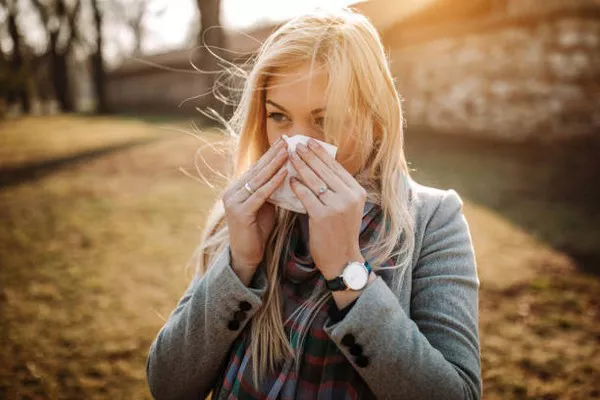An itchy nose, while seemingly innocuous, can be a bothersome and uncomfortable sensation. Whether it manifests as occasional irritation or persistent itching, understanding the underlying causes is essential for effective management and relief. This comprehensive guide aims to elucidate the diverse factors contributing to an itchy nose, encompassing various symptoms, triggers, and treatment options to empower individuals in addressing this common ailment.
Itchy Nose:
An itchy nose, medically known as pruritus, refers to the sensation of irritation or discomfort localized to the nasal region. It may present as a mild annoyance or escalate to intense itching, accompanied by redness, swelling, and inflammation. While often benign, persistent or severe itching may indicate an underlying medical condition requiring prompt evaluation and intervention.
Common Causes of Itchy Nose:
Allergic Rhinitis:
Allergic rhinitis, commonly known as hay fever, is a prevalent cause of nasal itching. It occurs when the immune system overreacts to airborne allergens, such as pollen, dust mites, pet dander, or mold spores. Nasal itching in allergic rhinitis is typically accompanied by sneezing, nasal congestion, watery eyes, and postnasal drip.
Nasal Irritants:
Exposure to irritants, such as cigarette smoke, air pollutants, strong odors, or chemical fumes, can trigger nasal itching. These irritants can irritate the nasal mucosa, leading to inflammation and pruritus. Individuals with sensitivities to specific substances may experience heightened nasal itching upon exposure.
Dry Air:
Dry air, particularly in indoor environments with low humidity, can exacerbate nasal itching. Prolonged exposure to dry air can deplete the moisture levels in the nasal passages, resulting in dryness, irritation, and itching. This phenomenon is commonly observed during the winter months or in arid climates.
Infections:
Nasal infections, such as viral or bacterial rhinitis, sinusitis, or common colds, can cause nasal itching as a secondary symptom. Infections induce inflammation of the nasal mucosa, leading to swelling, congestion, and pruritus. Additionally, fungal infections, although less common, can also contribute to nasal itching.
Allergic Reactions:
In some cases, nasal itching may result from allergic reactions to specific foods, medications, or topical products. Individuals with known allergies or sensitivities may experience localized itching in the nasal area following exposure to allergens. Prompt identification and avoidance of allergenic triggers are essential for symptom management.
Medications:
Certain medications, particularly those administered intranasally or as nasal sprays, may cause nasal itching as a side effect. These medications include corticosteroids, antihistamines, decongestants, and nasal decongestant sprays. Individuals experiencing nasal itching as a medication side effect should consult their healthcare provider for alternative treatment options.
Underlying Medical Conditions:
Chronic medical conditions, such as eczema, psoriasis, lupus, or Sjögren’s syndrome, may manifest with nasal itching as a symptom. These conditions affect the skin and mucous membranes, leading to inflammation, dryness, and pruritus. Proper diagnosis and management of the underlying condition are crucial for alleviating nasal itching.
Treatment Options for Itchy Nose:
Avoidance of Triggers:
Identifying and avoiding triggers that exacerbate nasal itching is the cornerstone of management. This may involve minimizing exposure to allergens, irritants, dry air, or known allergenic substances. Implementing environmental modifications, such as using air purifiers, humidifiers, and allergen-proof covers, can help reduce symptom severity.
Nasal Irrigation:
Nasal irrigation, using saline nasal sprays or neti pots, can help alleviate nasal itching by moisturizing the nasal passages and flushing out irritants. Regular nasal irrigation can promote nasal hygiene, reduce inflammation, and alleviate symptoms of nasal congestion and itching.
Topical Treatments:
Topical treatments, such as nasal corticosteroid sprays or antihistamine nasal sprays, can provide symptomatic relief for nasal itching associated with allergic rhinitis or nasal inflammation. These medications work by reducing nasal inflammation, inhibiting allergic responses, and alleviating pruritus.
Oral Antihistamines:
Oral antihistamines, available over-the-counter or by prescription, can effectively alleviate nasal itching and other allergy symptoms. These medications block the action of histamine, a chemical mediator involved in allergic reactions, thereby reducing itching, sneezing, and nasal congestion.
Moisturizing Nasal Creams:
Moisturizing nasal creams or ointments can help alleviate nasal itching associated with dryness or irritation of the nasal mucosa. These products provide a protective barrier, retain moisture, and soothe inflamed nasal tissues, promoting symptom relief and comfort.
Medical Evaluation:
Individuals experiencing persistent or severe nasal itching despite conservative measures should seek medical evaluation. A healthcare provider can conduct a comprehensive assessment to identify underlying causes, such as infections or underlying medical conditions, and formulate an appropriate treatment plan.
See Also: 10 Effective Strategies for Relieving Stuffy Nose Allergies
Conclusion:
An itchy nose can stem from various factors, including allergic reactions, nasal irritants, dry air, infections, medications, or underlying medical conditions. Understanding the underlying causes and triggers is crucial for implementing effective management strategies and achieving symptom relief. By adopting a comprehensive approach that encompasses avoidance of triggers, topical treatments, nasal irrigation, and medical evaluation when necessary, individuals can effectively manage nasal itching and improve their overall quality of life.


